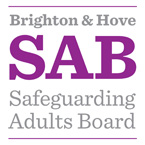Fraud, Scams and Cybercrime
Financial or material abuse can take many different forms; it includes fraud or scams, theft, cybercrime, exploitation, deception, false accounting, or pressure in connection with wills as well as the misuse or misappropriation of property, assets, possessions, savings, capital or benefits.
Fraud has become the most commonly experienced crime in the UK and during 2020 the number of cases of fraud reported rose by a third, reaching more than 410,000, according to analysis by Which. Fraud includes doorstep crime, identify theft, phishing and romance scams and the perpetrator could be a family member, a friend, a person in a position of trust, a rogue trader, a bogus caller or a cybercriminal.
Whilst they may be career criminals, or opportunists, they are more likely to prey on adults at risk, such as those experiencing hardship, loneliness, social isolation or with some form of cognitive impairment. Age UK advise that whilst people of all ages and backgrounds are victims older people are over represented as victims of particular frauds, including pension and investment scams, postal scams, doorstep scams and telephone scams.
Some victims may not know they are a victim, some may be complicit as the abuser is their only contact with the outside world, and they are dependent on them. Victims are quite often unaware of who to report their abuser to, they may feel too embarrassed or scared of potential repercussions.
It is therefore vital that all professionals are aware of possible signs that indicate someone may be a victim of fraud, or a scam, and that this is reported in order to prevent further criminal activity occurring. These possible signs could include:
- A sudden inability to pay bills.
- The sudden withdrawal of money from an account.
- An inordinate amount of post or frequent telephone calls.
- Secrecy and a reluctance to discuss the situation, which could be caused by grooming.
- The purchase of items that the individual does not require or use.
- A reluctance to accept care services
- Carers main interest is financial with little regard for the health and welfare of the vulnerable adult.
- The person managing the finances is evasive and uncooperative
- Personal items going missing
- Unreasonable or inappropriate gifts
You can watch a video giving further guidance on spotting warning signs of fraud or scams here.
Resources
There are a range of resources available to support both professionals and the public in responding to fraud and scams.
- Sussex Police offer advice and information on fraud at their website to ensure that this can be reported to the right place. You can access this here.
- Sussex and Surrey Police publish a joint monthly fraud newsletter that provides up to date information, advice and guidance on frauds and scams.
- The Sussex Police and Crime Commissioner’s Elders’ Commission have a video sharing top tips for avoiding becoming a victim of fraud, that can be watched here.
- Local guidance on fraud protection can also be found at Safe Space Sussex here.
- National guidance on cybercrime protection can be found at Get Safe online here.
- Age UK offer information and advice for older people on protection from frauds and scams that can be found here.
- Citizens Advice Bureau offer information and advice on reporting scams that can be found here.
- Take Five is a national campaign that offers information and advice, as well as a range of resources such as posters and a quiz, on avoiding fraud and scams, which can be found here.
- If someone has been a victim of fraud, or any other crime, they can access support from Victim Support here.
Professionals
- Operation Signature is a campaign run by Sussex Police to support vulnerable victims of fraud through awareness and prevention. Professionals should report any fraud they identify to Operation Signature using the referral form below.
- Professionals can find research on fraud and financial scamming from the National Centre for Post-Qualifying Social Work and Professional Practice here.
- Friends against Scams is a National Trading Standards scheme, offering guidance on fraud and scams as well as Practitioner e-learning, which can be found here.
Fraud, Scams and Financial Abuse
As part of NHS Sussex Safeguarding fortnight Sussex Police delivered an online session on Fraud, Scams, and Financial Abuse. This highlighted the impact these issues can have, how to identify that it may be occurring, and some of the services and resources available for professionals in this area. The session also included a question and answer session and you can watch it here.
